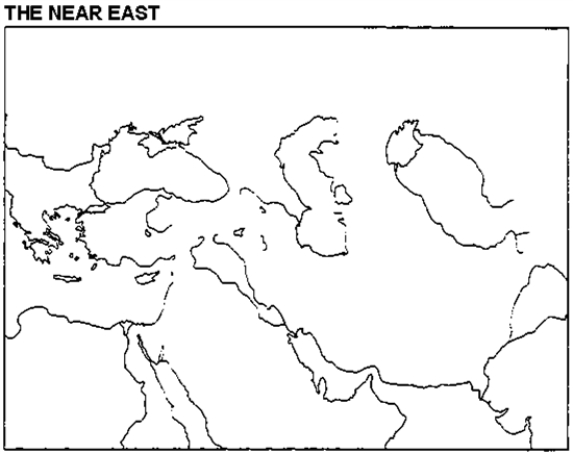Exam 2: The Hebrews: a New View of God and the Individual
Exam 1: The Ancient Near East: the First Civilizations82 Questions
Exam 2: The Hebrews: a New View of God and the Individual74 Questions
Exam 3: The Greeks: From Myth to Reason95 Questions
Exam 4: Rome: From City-State to World Empire93 Questions
Exam 5: Early Christianity: a World Religion79 Questions
Exam 6: The Rise of Europe: Fusion of Classical, Christian, and Germanic Traditions89 Questions
Exam 7: The Flowering and Dissolution of Medieval Civilization84 Questions
Exam 8: Transition to the Modern Age: Renaissance and Reformation92 Questions
Exam 9: Political and Economic Transformation: National States, Overseas Expansion, Commercial Revolution84 Questions
Exam 10: Intellectual Transformation: the Scientific Revolution and the Age of Enlightenment86 Questions
Exam 11: The Era of the French Revolution: Affirmation of Liberty and Equality92 Questions
Exam 12: The Industrial Revolution: the Transformation of Society79 Questions
Exam 13: Thought and Culture in the Early Nineteenth Century82 Questions
Exam 14: Surge of Liberalism and Nationalism: Revolution, Counterrevolution, and Unification78 Questions
Exam 15: Thought and Culture in the Mid-Nineteenth Century: Realism, Positivism, Darwinism, and Social Criticism86 Questions
Exam 16: Europe in the Late Nineteenth Century: Modernization, Nationalism, Imperialism93 Questions
Exam 17: Modern Consciousness: New Views of Nature, Human Nature, and the Arts78 Questions
Exam 18: World War I: the West in Despair83 Questions
Exam 19: An Era of Totalitarianism87 Questions
Exam 20: World War 2: Western Civilization in the Balance55 Questions
Exam 21: Europe After World War 2: Recovery and Realignment, 1945-198963 Questions
Exam 22: The Troubled Present55 Questions
Select questions type
Please use this outline map of the Near East to answer the question(s).
 -Comment on the Hebrew concept of freedom and explain whether Hebrew beliefs supported or diminished the concept of individual freedom.
-Comment on the Hebrew concept of freedom and explain whether Hebrew beliefs supported or diminished the concept of individual freedom.
(Essay)
4.8/5  (36)
(36)
Please define the following key terms. Show Who? What? Where? When? Why Important?
-Moses
(Essay)
4.8/5  (36)
(36)
The conquest of Judah by the Chaldeans in 586 B.C. is known in history as the
(Multiple Choice)
4.8/5  (43)
(43)
Please define the following key terms. Show Who? What? Where? When? Why Important?
-Jerusalem
(Essay)
4.9/5  (33)
(33)
Please define the following key terms. Show Who? What? Where? When? Why Important?
-Solomon
(Essay)
4.8/5  (40)
(40)
Please use this outline map of the Near East to answer the question(s).
 -Discuss the view that the Hebrews were noted by their Prophets.
-Discuss the view that the Hebrews were noted by their Prophets.
(Essay)
4.9/5  (44)
(44)
Please define the following key terms. Show Who? What? Where? When? Why Important?
-King Cyrus
(Essay)
4.8/5  (39)
(39)
The kingdom of Israel split into Israel and Judah after the death of Solomon owing to
(Multiple Choice)
4.9/5  (35)
(35)
Please define the following key terms. Show Who? What? Where? When? Why Important?
-Amos
(Essay)
4.9/5  (42)
(42)
Please define the following key terms. Show Who? What? Where? When? Why Important?
-Tanak
(Essay)
4.9/5  (42)
(42)
Please use this outline map of the Near East to answer the question(s).
 -Did the Hebrews offer the world a specific view of law and of the purpose of history?
-Did the Hebrews offer the world a specific view of law and of the purpose of history?
(Essay)
4.8/5  (41)
(41)
Showing 61 - 74 of 74
Filters
- Essay(0)
- Multiple Choice(0)
- Short Answer(0)
- True False(0)
- Matching(0)